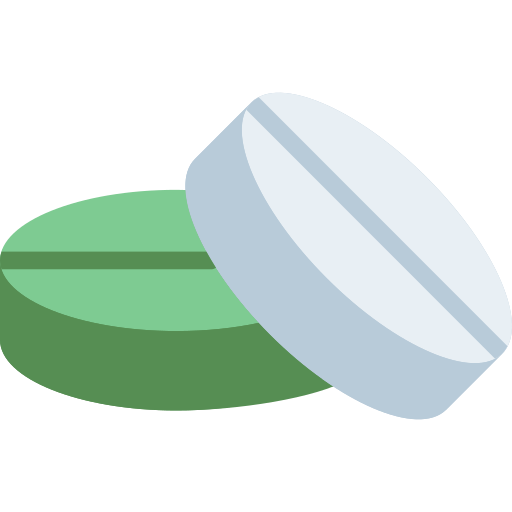
Product Details
Description
First-line treatment of patients with metastatic Non-Small Cell Lung cancer (NSCLC) whose tumors have Epidermal Growth Factor Receptor (EGFR) exon 19 deletions or exon 21 substitution mutations as detected. Maintenance treatment of patients with locally advanced or metastatic NSCLC whose disease has not progressed after four cycles of platinum based first-line chemotherapy. Treatment of locally advanced or metastatic NSCLC after failure of at least one prior chemotherapy regimen. First-line treatment of patients with locally advanced, unresectable or metastatic pancreatic cancer, in combination with gemcitabine.
Anticoagulants: Interaction with coumarin-derived anticoagulants, including warfarin, leading to increased International Normalized Ratio (INR) and bleeding adverse reactions. CYP3A4 inhibitors: Erlotinib is metabolized predominantly by CYP3A4. Co-treatment with the potent CYP3A4 inhibitor ketoconazole increased Erlotinib AUC by 67%. When Erlotinib was co-administered with Ciprofloxacin, an inhibitor of both CYP3A4 and CYP1A2, the Erlotinib exposure [AUC] and maximum concentration [Cmax] increased by 39% and 17%, respectively. CYP3A4 inducers: Pre-treatment with the CYP3A4 inducer Rifampicin for 7-11 days prior to Erlotinib decreased Erlotinib AUC by 58% to 80%. Dose modifications are recommended. Drugs affecting gastric pH: Co-administration of Erlotinib with omeprazole decreased Erlotinib AUC by 46% and co-administration of Erlotinib with Ranitidine 300 mg decreased Erlotinib AUC by 33%.
Pregnancy category D. Based on its mechanism of action, Erlotinib can cause fetal harm when administered to a pregnant woman. It is not known whether Erlotinib is present in human milk. Because many drugs are present in human milk and because of the potential for serious adverse reactions in nursing infants from Erlotinib, a decision should be made whether to discontinue nursing or discontinue the drug, taking into account the importance of the drug to the mother.
Interstitial Lung Disease (ILD): Occurs in 1.1% of patients. Withhold Erlotinib for acute onset of new or progressive unexplained pulmonary symptoms, such as dyspnea, cough and fever. Discontinue Erlotinib if ILD is diagnosed. Renal Failure: Monitor renal function and electrolytes, particularly in patients at risk of dehydration. Withhold Erlotinib for severe renal toxicity. Hepatotoxicity with or without hepatic impairment including hepatic failure and hepatorenal syndrome: Monitor periodic liver testing. Withhold or discontinue Erlotinib for severe or worsening liver tests. Gastrointestinal perforations-discontinue Erlotinib. Bullous and exfoliative skin disorders-discontinue Erlotinib. Myocardial infarction (Ml)/ischemia: The risk of Ml is increased in patients with pancreatic cancer.
Pediatric use: The safety and effectiveness of Erlotinib in pediatric patients have not been established. Geriatric use: No overall differences in safety or efficacy were observed between subjects 65 years and older and those younger than 65.
Single oral doses of Erlotinib up to 1,000 mg in healthy subjects and weekly doses up to 1,600 mg in cancer patients have been tolerated. Repeated twice-daily doses of 200 mg single-agent Erlotinib in healthy subjects were poorly tolerated after only a few days of dosing. Based on the data from these studies, an unacceptable incidence of severe adverse reactions, such as diarrhea, rash, and liver transaminase elevation, may occur above the recommended dose. In case of suspected overdose, Erlotinib should be withheld and symptomatic treatment instituted.
Targeted Cancer Therapy
Store at a temperature not exceeding 30°C in a dry place. Protect from light and moisture.
-
Support 24/7
Call us anytime -
100% Safety
Only secure payments